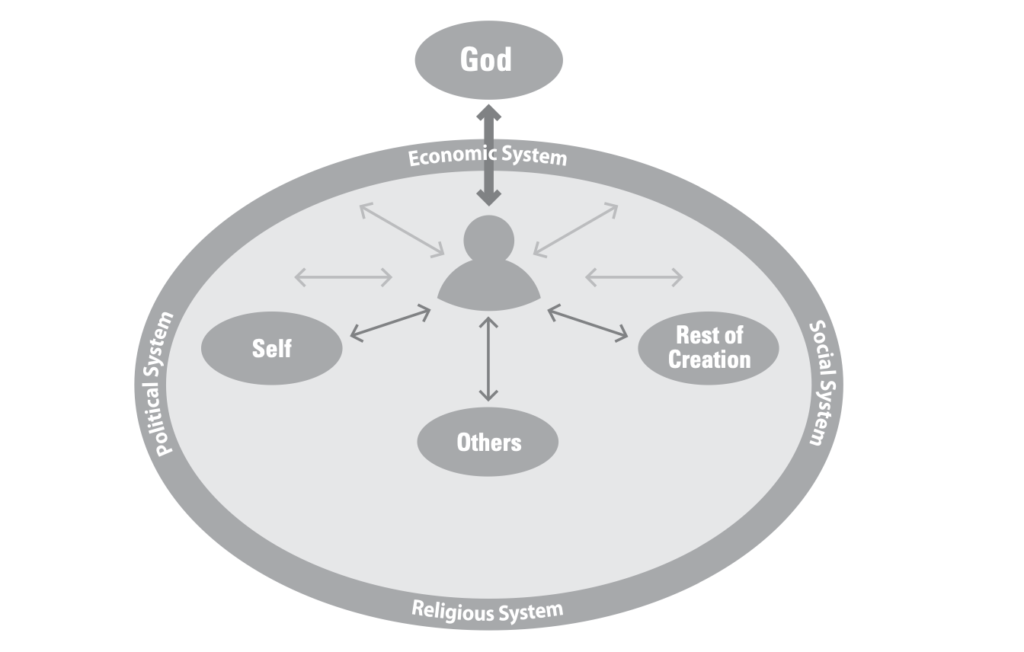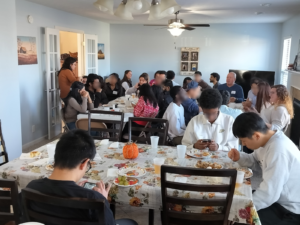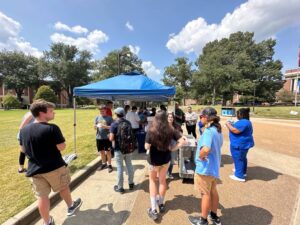Guide to having dynamic partnerships that expand the kingdom of God.
“Think Win-Win” is a principle introduced by Stephen Covey in his book The 7 Habits of Highly Effective People. It emphasizes a mindset of mutual benefit, encouraging individuals to seek solutions and agreements that are advantageous for all parties involved. This approach focuses on collaboration, empathy, and creating shared value rather than engaging in competition or settling for compromise. Covey argues that adopting a Win-Win mindset can strengthen relationships, build trust, and lead to more sustainable and fulfilling outcomes in both personal and professional interactions.
MENTAL PARADIGM SHIFT
I have been in ministry for sixteen years. The first four years were spent in youth and children’s ministry on church staff while I was in college and seminary. During this time, I also volunteered with organizations like FCA, public school mentoring programs, afterschool programs such as the Boys and Girls Club, and coached sports teams. The next four years were dedicated to youth ministry and church planting in the inner city. I lived in New Orleans, where, alongside my work at the church plant, I served as the youth program director for a nonprofit focused on helping kids progress from kindergarten to college.
For the past eight years, I have been involved in college ministry, primarily campus-based but also through church initiatives (even though I spent one year on staff as a college minister and my wife was a college minister church based for 6 years). Throughout my ministry journey, the organizations I have worked with have engaged in various partnerships. Some of these partnerships proved highly beneficial, while others were less impactful. Some took time to bear fruit, while others were mutually beneficial from the start.
The paradigm shift that must take place in all of us is learning to see partnership not from our perspective but from God’s perspective. I know the frustration of partnerships that fall short of expectations—being taken advantage of or mistreated along the way. You want to be a kingdom player, yet it feels like everyone else benefits while you lose.
This is where the book When Helping Hurts has been invaluable in framing a better approach to creating win-win partnerships. During my time in New Orleans, homelessness and poverty were pressing issues we faced in ministry. The area I served had a median income of less than $20,000 per year. Often, in our efforts to help, we encountered challenges that undermined the good we aimed to achieve.
For example, we ran an afterschool program, but parents would show up 45 minutes to an hour late without concern for the inconvenience caused. We worked tirelessly with families to improve their children’s academic performance, only to discover that some parents allowed their kids to skip school, compounding the very issues we were trying to address. At times, the progress we made seemed to vanish as new problems arose.
When Helping Hurts introduces a crucial paradigm for partnerships: the reconciliation of relationships back to God. The book identifies four key relationships that impact the effectiveness of partnerships:
- Relationship with God
- Relationship with Self
- Relationship with Others
- Relationship with the Rest of Creation
These categories provide a framework for understanding and fostering meaningful, God-centered partnerships that truly help without causing unintended harm:
RELATIONSHIP WITH GOD:
This is our primary relationship, the other three relationships flowing out of this one. The Westminster Shorter Cate- chism teaches that human beings’ primary purpose is “to glorify God and to enjoy Him forever.” This is our calling, the ultimate reason for which we were created. We were created to serve and give praise to our Creator through our thoughts, words, and actions. When we do this, we experience the presence of God as our heavenly Father and live in a joyful, intimate relationship with Him as His children.
RELATIONSHIP WITH SELF:
People are uniquely created in the image of God and thus have inherent worth and dignity. While we must remember that we are not God, we have the high calling of reflecting God’s being, making us superior to the rest of creation.
RELATIONSHIP WITH OTHERS:
God created us to live in a loving relationship with one another. We are not islands! We are made to know one another, to love one another, and to encourage one another to use the gifts God has given to each of us to fulfill our callings.
RELATIONSHIP WITH THE REST OF CREATION:
The “cultural man-date” of Genesis 1:28–30 teaches that God created us to be stewards, people who understand, protect, subdue, and manage the world that God has created in order to preserve it and to produce bounty. Note that while God made the world “perfect,” He left it “incomplete.” This means that while the world was created to be without defect, God called humans to interact with creation, to make possibilities into realities, and to be able to sustain ourselves via the fruits of our stewardship. The figure below from page 54 helps us see the paradigm in relationship to poverty.

Wait, wait, wait. I understand your point, but doesn’t When Helping Hurts primarily focus on poverty and not college ministry? Yes, it does. But the mindset it promotes is applicable across contexts.
“The earth is the Lord’s, and everything in it.” We partner with others because we are stewards of what God has given us, using those gifts as part of His plan to reconcile the world back to Himself.
The real shift happens when we view partnership through the lens of God’s reconciliation rather than solely through its perceived benefits to us. Partnerships should be seen as a means for God to accomplish His work of restoring relationships, rather than as tools for advancing our ministry’s strategic goals. When we align our perspective with this truth, we begin to see the ultimate outcome—a WIN-WIN-WIN. Even if the partnership doesn’t turn out favorably for us or we encounter challenges along the way, the goal was never about our gain. It was about working alongside God in His mission of reconciliation.
I believe in a third way: a WIN-WIN-WIN. This approach ensures that all parties involved can achieve meaningful benefits when proper expectations are set, particularly in college ministry. The ministry we steward in God’s kingdom wins. The other partner involved wins. And the students we minister to win! WIN-WIN-WIN!
As I prepared for my breakout session at Collegiate Summit discussing this topic, my thoughts were shaped by my own ministry experiences, insights from relationships with others, and stories of significant WIN-WIN-WIN partnerships. To gain a broader perspective, I reached out to over fifty college ministers across the United States. This group included those serving in the South on campus-based ministries, those involved in church-based partnerships in areas with less gospel saturation, and leaders working in diverse contexts—large campuses, small campuses, urban settings, and rural communities.
From this collective insight, I identified four categories of outcomes that define a WIN-WIN-WIN:
- Typical Outcomes
- Cooperative Contributions
- Enhanced Fruitfulness
- Kingdom Building
While the specific wins varied, the overarching result was the same: all parties experienced meaningful benefits, and God’s work of reconciliation advanced.
Check back next month for the continuation of this article.
Adam Venters is the Director of Carolina BCM in South Carolina. You can see more about the ministry at carolinabcm.org.






